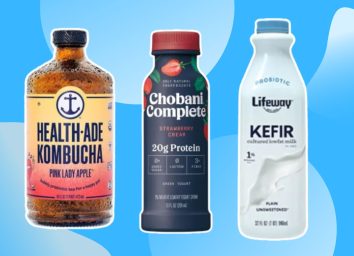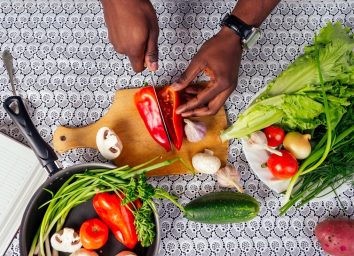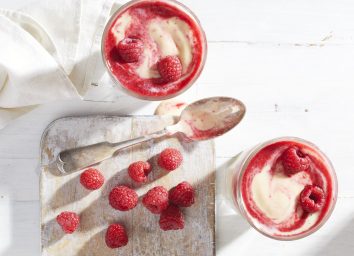The Worst Foods for Gut Health

Right now, keeping your gut in tip-top shape is more important now than ever, as many people across the nation continue to become infected with the coronavirus. However, gut health impacts the function of many other vital organs in the body, especially the brain.
The relationship between the gut and the brain is often referred to as the gut-brain axis, which describes the way in which the digestive system and the brain communicate through the central and enteric nervous system. This relationship can then be used to explain why certain foods affect our mood, as an estimated 90% of the body’s serotonin levels are believed to be in the gut. Serotonin is the neurotransmitter responsible for regulating emotions, particularly ones of happiness.
Now, if you’re constantly eating foods that are irritating the gut, causing the lining in the digestive tract to become inflamed, this can offset the beneficial bacteria that naturally occur in your gut. Below, you will see which types of foods are the biggest culprits of inflammation, so that you can limit eating those and improve your gut health.
Which foods are known to cause inflammation?
There are several types of foods that are known to cause inflammation in the body, which can effectively hinder overall health over time. In a different Eat This, Not That! article about how a plant-based diet can protect you from disease, Sydney Greene, MS, RD explained how packaged foods that are heavily processed play a pivotal role in promoting inflammation.
“Processed foods, with their high sugar levels, omega-6 fatty acids, excess sodium, and junky additives, on the other hand, can stoke the fire of inflammation,” says Greene. “When inflammation is high, it taxes the immune system leaving us more susceptible to disease and illness.”
Processed foods can include anything from packaged meats such as bacon and beef jerky to sugary treats such as packaged muffins and cookies—both of which are filled with refined carbohydrates. Refined carbs are grains, breads, and flours that have been stripped of fiber, which is associated with promoting satiety, balancing blood sugar levels, and feeding gut flora (healthful bacteria in the stomach). Eating refined carbs as opposed to more nutrient-dense ones may also play a role in causing inflammation.
There are even foods in their natural form that are known to spur inflammation. In another article concerning What Happens to Your Body When You Can’t Have Dairy, Ashley Kitchens, MPH, RD, LDN lends insight on how certain kinds of dairy may irritate the gut.
“Dairy products such as cheese and full-fat cow’s milk contain saturated fat and saturated fat can increase inflammation,” she said.
In short, dairy products and processed foods can potentially hinder gut health because both are known to have inflammatory effects on the body, but especially in the gut. However, there are several ways you can combat this irritation.
What are some ways you can improve gut health?
Two experts, Kristie Leigh, Registered Dietitian at Danone North America and Ali Webster, PhD, RD, Director of Research and Nutrition Communications, International Food Information Council share a few tips on what you can do to make your gut healthier.
Eat a variety of fruits and vegetables.
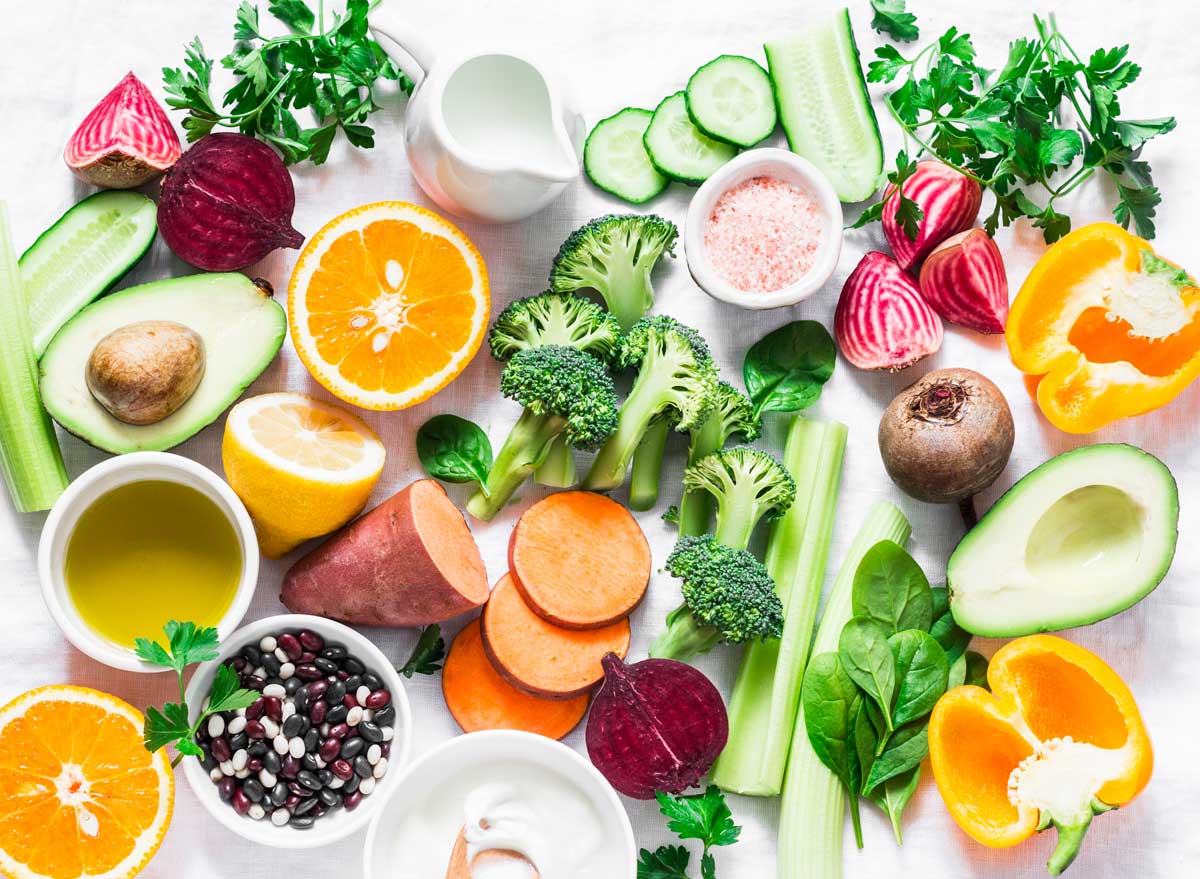
“One of the easiest ways to help support your gut health is with a diet full of variety and color,” says Leigh.
The dietitian even suggests using a rainbow as your guide, picking fruits and vegetables of all different colors, as each pack their own distinctive combination of antioxidants, minerals, and vitamins. She also recommends incorporating lean meats, whole grains, and fermented foods—such as yogurt and kimchi—into your diet as well.
“The fiber found in fruits, vegetables, and whole grains are good for the bacteria in your gut and many yogurts contain live cultures that can help aid in digestion,” she says. “Additionally, including probiotic foods in your diet can also help support your gut health because the benefits of probiotics are strain-specific.”
Webster adds that lowering your intake of added sugars can also be beneficial for gut health.
Get plenty of quality sleep.

“Diet is just one component of achieving optimal gut health,” says Webster. “Other key factors like getting enough sleep, reducing stress, and exercising regularly play a substantial role.”
Leigh adds that, similar to the circadian rhythm our bodies follow, our gut microbiomes also rely on a consistent rhythm.
“Scientists have shown that when our circadian rhythms are disrupted, like what happens when we experience jet lag, our microbial rhythms are also impacted,” she says. “Sleep is also when our bodies repair themselves, so getting enough sleep is important for more [just] than your gut health.”
While it’s hard to pinpoint exactly how much sleep each individual needs, The National Sleep Foundation says that in general, those between the ages of 18 and 64 should consider getting 7-9 hours of sleep each night. Those who are 65 years of age or older may benefit better from just 7-8 hours. Ultimately, it’s the quality of your sleep that outweighs the length. For tips on how to promote better sleep, read up on The Best Foods For Improved Sleep.
Get more exercise.
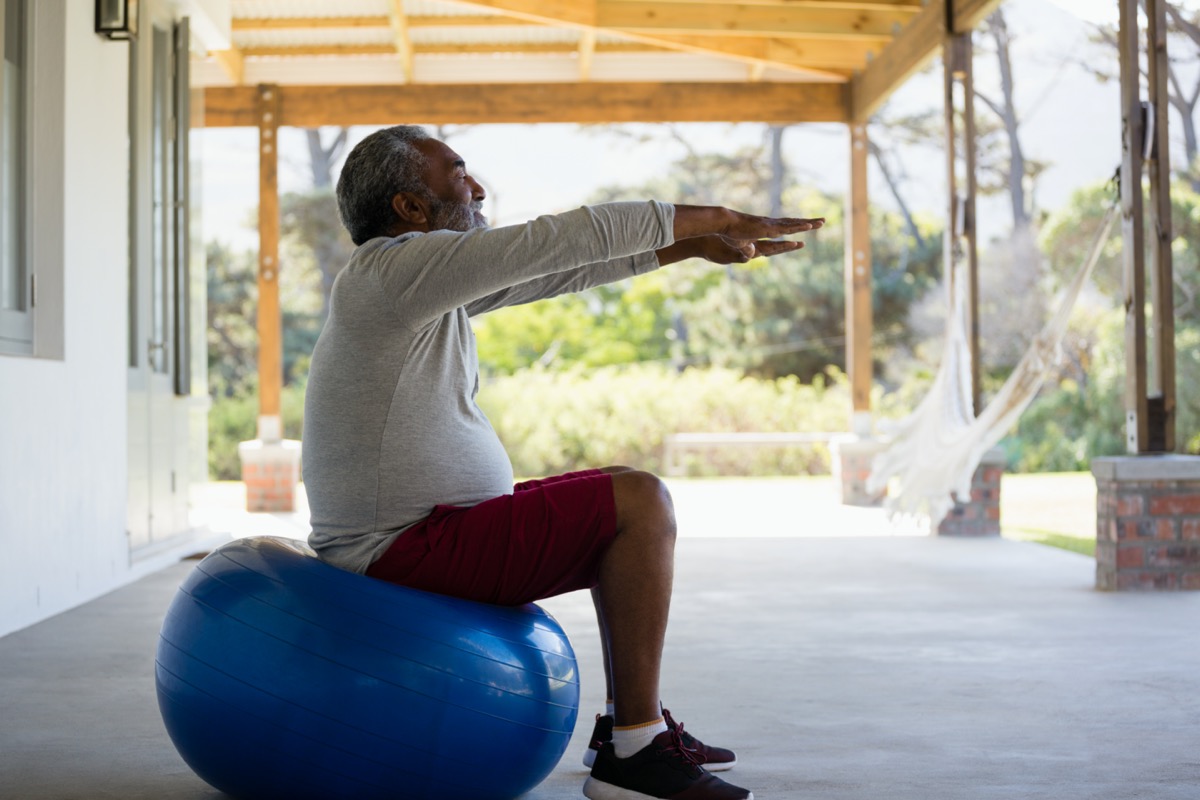
Both Leigh and Webster say that exercising regularly is beneficial for your overall health. However, Leigh also says that some studies even suggest frequent exercise could positively impact your gut microbiome.
“Taking a walk outside or going for a run is one of the easiest ways to work exercise into your healthy routine, but even if you can’t make it outside some stretching, an online workout class, or taking some laps around your apartment can help get your blood pumping,” she says.
If you’re in need of some new in-home workouts, be sure to check out How To Get Abs During The Pandemic for ideas and inspiration.
